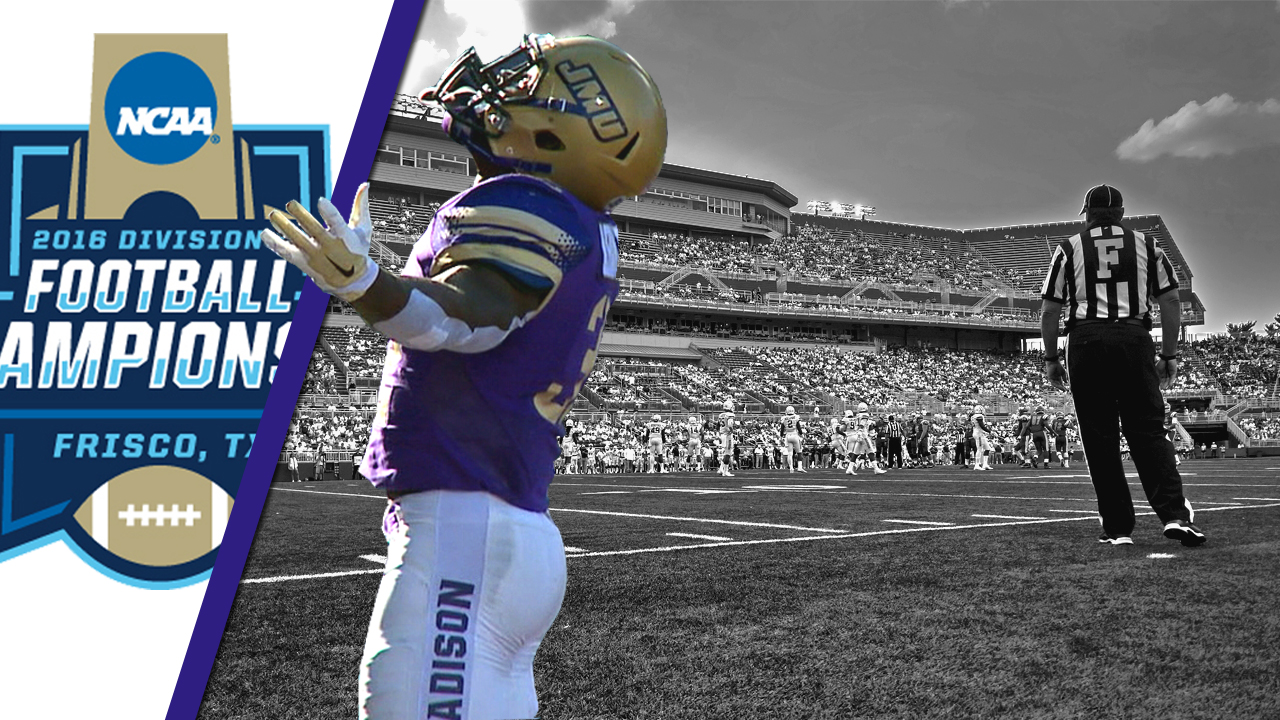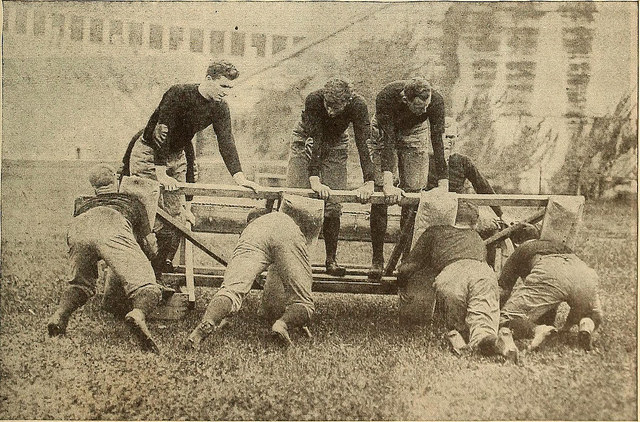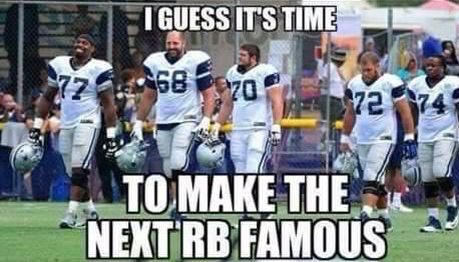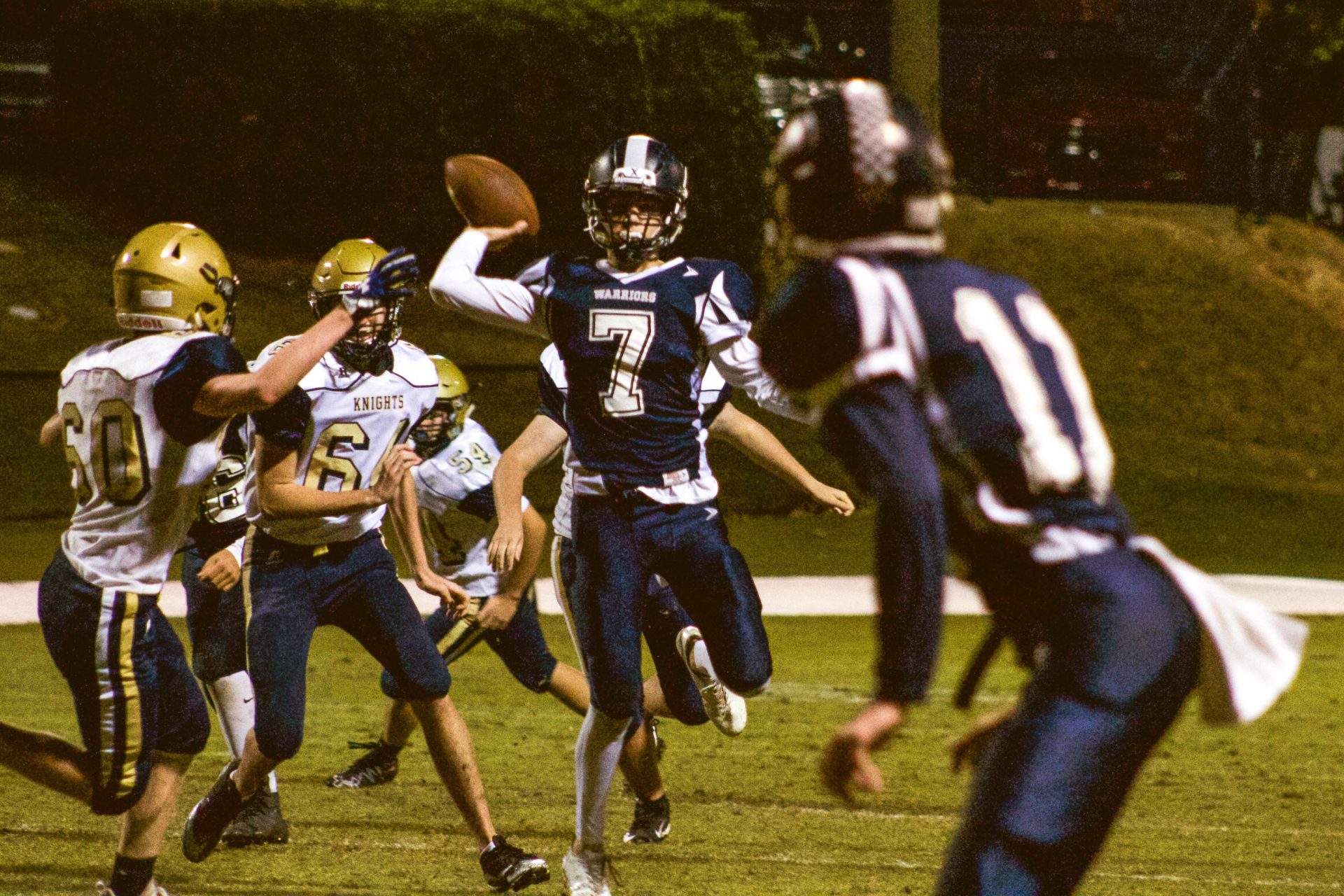If you have been paying attention to the drama unfolding in this year’s college bowl games you will have noticed a new trend that is taking college football (and every other level) by storm. That trend is called the Run-Pass Option, or simply RPO’s.
In fact, so powerful is this new RPO concept that defenses are desperately searching for answers.
What is an RPO? Let’s start at the beginning of the evolution of this concept, the simple football option.
Football is a simple game…it’s blocking, tackling and running a famous coach once said (Lombardi)!
Then football evolved to more advanced concepts of passing, which further revolutionized the game.
As plays continued to develop, new concepts appeared that allowed teams to get away with not having to block a defender by instead forcing him to make a decision…and then whatever that decision was, making the defender be wrong.
This was called an option. The first options were all run options and today teams continue to heavily rely on this concept in nearly every different style of offense.
Most double-options happen when a Quarterback starts to hand off the football to another running back, while at the same time watching a defender’s reaction.
Whoever that defender chooses to tackle, the Quarterback makes him wrong by either giving or keeping the ball to gain ground.
This double run option was also executed by pitching the ball or keeping it when running directly at an unblocked defender. Whoever he choose, the opposite player would get the ball…kind of like a childhood game of keep away!
But there was, and still is, one rule that prevented offenses from really putting defenses in a bind. That rule states that offensive lineman are not to go past three yards from the line of scrimmage when the ball is being passed forward.
Screen passes are not forward passes, so coaches began to create RPO’s or Run-Pass options that made a defender wrong on a bigger scale. The unblocked defender (usually a linebacker who has to stop both the run and pass) would have to choose to either come up and stop the run play, or drop and defend the screen pass.
To disguise this even more, offensive lineman would always run block as if the ball were being handed off on a run play every time. This made it very difficult for defensive players to read the intent of the line and get a jump on defending the play.
Quarterbacks would mostly look at a defender’s positioning to decide early on and even before the play began which option would be chosen.
As coaches began to push the limit on this kind of play, naturally they have challenged the officials willingness to call a penalty on lineman advancing past the three yards allowed downfield on a pass play.
This has always been a judgement call from officials and lately, many have not been as strict in enforcing the rule as in the past.
It was also a internal code of coaches that was known by all that you just didn’t allow your line to go past those three yards no matter what. You didn’t design those kinds of plays.
In other word’s, coaches didn’t try to get away with stretching the rule.
But that has changed of course – to now favor offensive production and increase exciting plays and comebacks at the cost of making defenses play passive and wait to see if its really a run or pass on every play regardless of what the line does.
The RPO’s seen today have pushed the limit of having lineman block like it’s a run play, while receivers still run routes downfield.
Instead of not blocking a defender like in run options, the offense is now playing with a defenders decision be either a run or pass defender.
If the defender comes up to stop the run (and they have to if they read a run play from the line) then the QB will pull the ball and pass it to a receiver in the zone they left.
Most quick passing plays that are a part of RPO’s can be thrown before a lineman advances down field.
Some teams and coaches have started designing and running plays where much deeper routes are being run and linemen are obviously past the three yard limit allowed on pass plays.
And officials are not calling them on it.
And so it goes for ratings, jobs and everything competitive…winning is the most important thing…even if it comes by stretching the rules.
Yea it burns me.
Because within the rules, you can still run RPO’s. You just can’t let your line get downfield past three yards before the ball is thrown!
So let’s take a look at a team that is doing it right AND having success!
There’s nothing I like more then taking a look at a team that has done some special things all season and how it pays off for them in the post season.
One of these teams is JMU. They will be playing in the FCS Championship game coming up here on January 7th.
So I did this with the JMU semifinal game and loved it so much I made a new video course out of my findings that I published on CoachTube.





